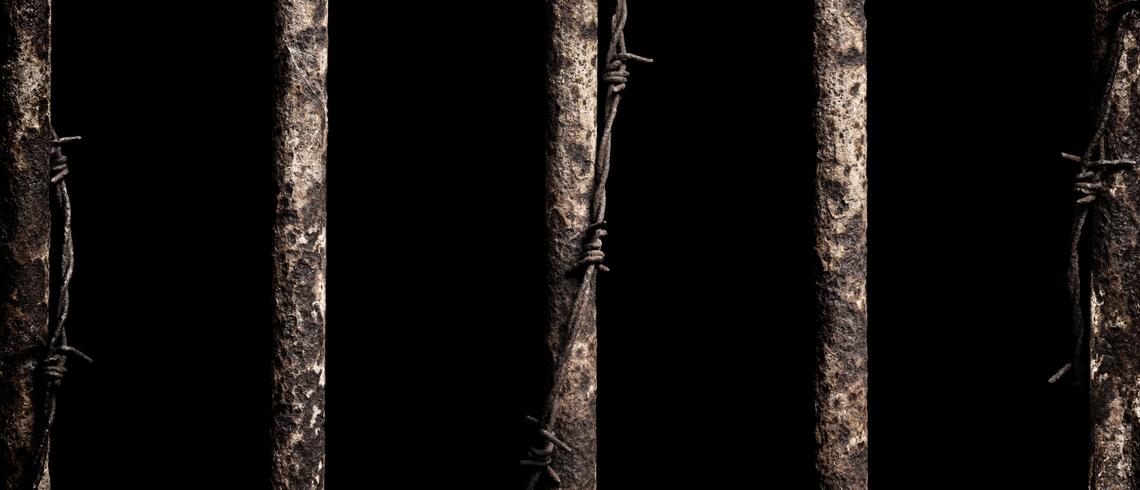
Framed: What is justice to a man wrongly imprisoned in India for 23 years?

HAZIQ QADRI
&
QADRI INZAMAM
Forced into confessing to a crime he didn't commit, Nisar Mirza Hussain has no idea how to rekindle his relationship with freedom.
Srinagar, India-administered Kashmir — It is May 1996 and Mirza Nisar Hussain is 16. He has finally come to terms with losing his father to cancer in 1990.
A year later, Nisar quits school to help his brother, Mirza Iftikhar Hussain. Their business selling Kashmiri Pashmina shawls and carpets is booming: they are doing well not only where they live in Delhi, but also in Mussoorie (an Indian hill station) and even in Nepal.
Nisar has gone to Kathmandu to receive payment from a trader. He stays with few other Kashmiris in a rented room near a marketplace in Maharajganj. He makes his way to a telephone booth to place a call to his family in Srinagar, with friends in tow.
He enters the booth and realises that several police vehicles have suddenly surrounded the booth - he has no idea what is happening. Even before he can make the phone call, he and his friends are bundled into a police vehicle and taken to an unknown location. What he does notice is that it's not the Nepal Police, but the Delhi Police leading the operation.
Nisar and his friends are interrogated and asked about the purpose of their visit to Nepal. Then he is shown the photograph of the trader who owes him money. He recognises him. His friends also recognise the photo and tell the police how they know him. It still doesn't make sense to Nisar.
They reach the police station where Nisar is taken aback when he sees dozens of Kashmiris having been rounded up (whose fates are unknown to this day). It’s in this police station that Nisar overhears the Delhi Police explaining to the Nepal Police that these Kashmiris are being detained in connection with the Lajpat Nagar bomb blasts that had taken place on the evening of May 2, 1996, in the busy Central Market area of Lajpat Nagar in Delhi. An attack that killed 13 and injured 39 others.
Though just a teenager, Nisar is able to grasp the gravity of the situation. He and his friends are frisked, stripped naked and interrogated for several hours. They are then driven to the India-Nepal border in Sunauli.
QADRI INZAMAM
Forced into confessing to a crime he didn't commit, Nisar Mirza Hussain has no idea how to rekindle his relationship with freedom.
Srinagar, India-administered Kashmir — It is May 1996 and Mirza Nisar Hussain is 16. He has finally come to terms with losing his father to cancer in 1990.
A year later, Nisar quits school to help his brother, Mirza Iftikhar Hussain. Their business selling Kashmiri Pashmina shawls and carpets is booming: they are doing well not only where they live in Delhi, but also in Mussoorie (an Indian hill station) and even in Nepal.
Nisar has gone to Kathmandu to receive payment from a trader. He stays with few other Kashmiris in a rented room near a marketplace in Maharajganj. He makes his way to a telephone booth to place a call to his family in Srinagar, with friends in tow.
He enters the booth and realises that several police vehicles have suddenly surrounded the booth - he has no idea what is happening. Even before he can make the phone call, he and his friends are bundled into a police vehicle and taken to an unknown location. What he does notice is that it's not the Nepal Police, but the Delhi Police leading the operation.
Nisar and his friends are interrogated and asked about the purpose of their visit to Nepal. Then he is shown the photograph of the trader who owes him money. He recognises him. His friends also recognise the photo and tell the police how they know him. It still doesn't make sense to Nisar.
They reach the police station where Nisar is taken aback when he sees dozens of Kashmiris having been rounded up (whose fates are unknown to this day). It’s in this police station that Nisar overhears the Delhi Police explaining to the Nepal Police that these Kashmiris are being detained in connection with the Lajpat Nagar bomb blasts that had taken place on the evening of May 2, 1996, in the busy Central Market area of Lajpat Nagar in Delhi. An attack that killed 13 and injured 39 others.
Though just a teenager, Nisar is able to grasp the gravity of the situation. He and his friends are frisked, stripped naked and interrogated for several hours. They are then driven to the India-Nepal border in Sunauli.
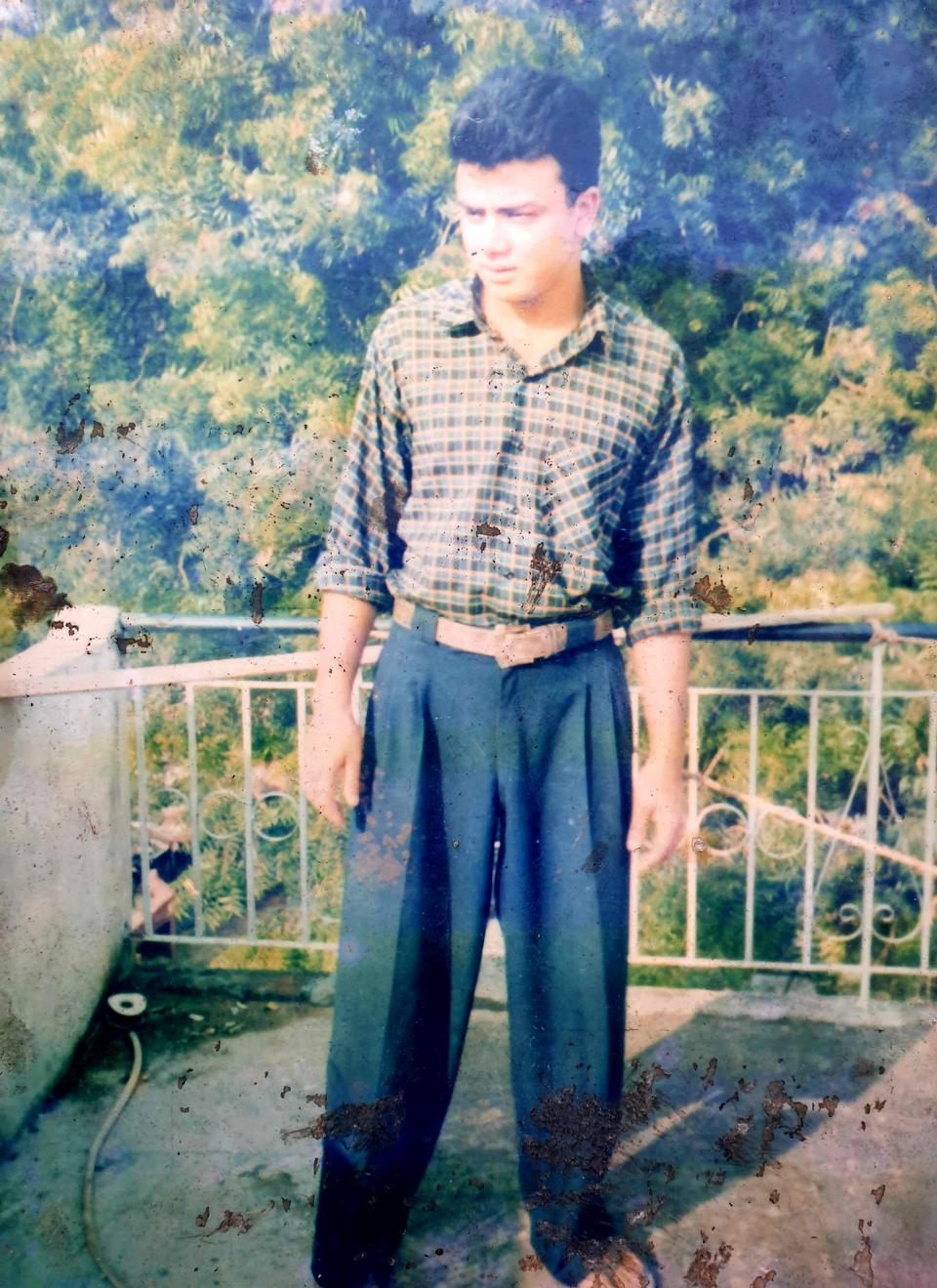
An old photograph of Mirza Nisar Hussain in his teenage years, before he was arrested by Indian police in Nepal. (TRTWorld)
The journey is not easy – on their way to India, the police abuse them, some of them even beat them. As they cross the border, Nisar is frightened by the sight of dozens of police jeeps waiting for them. They are hooded, bundled into a police jeep and driven to an underground detention camp in Lodhi Road — and that is where Nisar's story begins.
Torture and coercion
Nisar has no idea where he is, and as soon as he reaches the Lodhi Road detention camp, he is thrown into a cell and stripped naked. His friends, in other cells, face the same treatment.
Nobody says anything. A group of policemen barge in with wooden clubs and beat him occasionally. They hit him all over his body — his shrieks are confined to the concrete walls. He has, for now, disappeared from the face of the earth.
The more he pleads with his captors to stop, the more infuriated they grow and the more brutal they become, as if pleading for mercy triggers their mercilessness. He is not allowed clothes nor food, except on the rare occasion when he is given a cup of tea and bread, which is again followed by a harsh beating.
Nisar is unable to fall into a restful sleep. His friends in other cells meet the same fate. It dawns upon him how young men who disappear in Kashmir leave behind families in a miserable spiral of anticipation, and he could become one of those young men.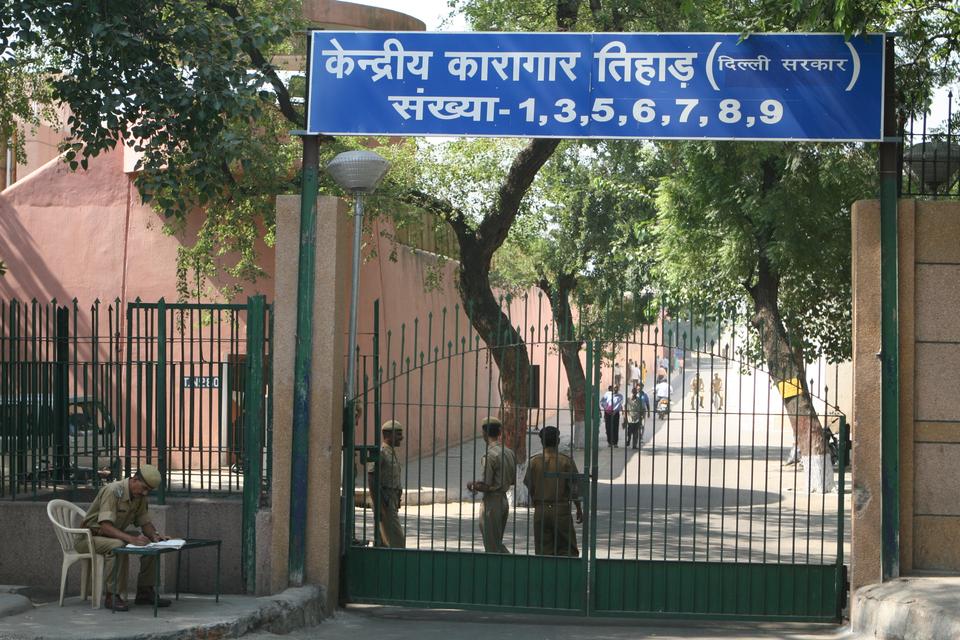
The journey is not easy – on their way to India, the police abuse them, some of them even beat them. As they cross the border, Nisar is frightened by the sight of dozens of police jeeps waiting for them. They are hooded, bundled into a police jeep and driven to an underground detention camp in Lodhi Road — and that is where Nisar's story begins.
Torture and coercion
Nisar has no idea where he is, and as soon as he reaches the Lodhi Road detention camp, he is thrown into a cell and stripped naked. His friends, in other cells, face the same treatment.
Nobody says anything. A group of policemen barge in with wooden clubs and beat him occasionally. They hit him all over his body — his shrieks are confined to the concrete walls. He has, for now, disappeared from the face of the earth.
The more he pleads with his captors to stop, the more infuriated they grow and the more brutal they become, as if pleading for mercy triggers their mercilessness. He is not allowed clothes nor food, except on the rare occasion when he is given a cup of tea and bread, which is again followed by a harsh beating.
Nisar is unable to fall into a restful sleep. His friends in other cells meet the same fate. It dawns upon him how young men who disappear in Kashmir leave behind families in a miserable spiral of anticipation, and he could become one of those young men.

Tihar, Central Jail, New Delhi, India. (Arijit Sen / Getty Images)
Nine days pass and he is beaten to a point where he is ready to tell the police that he's willing to do anything they want. By this point, Nisar’s family and friends hear about his arrest. The media starts raising questions about arrests made in Nepal. Under pressure, the Delhi Police’s special cell produces Nisar and two others before the media, but claims to have arrested them on that day.
But before being paraded in front of the media, they are made to sign on a ream of over 200 blank pages. In exchange for no further beatings, they are told to memorise a story: confess in court to their involvement in the Lajpat Nagar bomb blast.
Nisar, who knows nothing about driving, is told to confess to having driven an explosives-laden car to Lajpat Nagar; another friend is asked to tell the court that he had procured explosives from a handler. They agree to confess but seek assurances they will not be beaten.
But Nisar is already broken. How does a boy who has not yet begun to dream, understand that this could be the end of his future? He resigns to his fate. He gives up on hope. He longs for death. Prays for death.
When Nisar and his friends are produced in court, the judge takes a look at them, sees their condition, and asks nothing. He orders them into 14-day police custody. During those two weeks, several agencies interrogate them, take their statements and confessions. They are asked to repeat the story the Delhi Police asked them to memorise. But the thing about lies is that you tend to forget them no matter how much you repeat them.
In every retelling they forget a detail or deviate from the plot, then they are beaten until they remember what they are told to say. As they keep repeating the coerced confession, their chances for freedom turn bleaker. It’s here that Nisar learns that his brother, Iftikhar, has also been arrested in the same case. The hope that Iftikhar could support his family comes crashing down.
Two weeks later, Nisar and others are produced in court again and are sent to Tihar Jail. His age is falsely mentioned as 19, snatching any chance of him being sent to a juvenile court where his prospects for release would have been higher.
Jail diary
What would a 16-year-old, who had never even been in a fight before, do in a prison where hardened criminals, murderers and thieves were kept?
Two weeks later, Nisar finds himself in court again — and another shock awaits.
Nisar finds a team of Rajasthan Police in the court, demanding his custody. They claim Nisar’s involvement in a bomb blast on a bus in Samleti, Rajasthan that had taken place on May 22, 1996, and killed 14 people.
Nisar is shocked. He has never even been to Rajasthan, he tells the court. Even the Delhi Police, who had framed him, tell the court he should not be handed over to the Rajasthan Police. But the court sends Nisar into their custody and he's taken to Rajasthan in connection with the Samleti bomb blast case.
Nisar is taken to a jail in Rajasthan and put in a prison called Bandgaathi, a Hindi word for a ‘closed valley’, a name given by the prisoners to an isolation ward. It is a dark and dingy ward where each cell is devoid of any light and bereft of windows. They are so small that one feels the walls might just shrink. It has a heavy door with a small hole to peep through - that is his only window to the outside world. The cell is dusty, dark and humid. That is all there is: no separate space for a toilet, to bathe, to eat or sit.
Nisar eats, prays, sleeps and defecates within these four walls. All he gets is a small pot of water every day with which he washes and uses the rest of it to drink in the heat of the summer, in a region where the summer temperatures can touch 48 degrees celsius.
But the cell is so filthy that he gets lice in his hair, body and even in his eyebrows. A pot of water is not enough to get rid of the pests. The filth, lice and the sickness they cause is not where the torment stops.
Nisar is regularly beaten for three months, so much so that his left hip is broken. Every time the policemen leave the cell, he imagines himself dying. He imagines comfort in death. The police continuously force him to toe their line, confessing to having been part of the Samleti bomb blast.
How does one live with isolation? In that sweltering prison cell, Nisar survives by remembering the names and faces of all those he had loved. If there is a miracle that the weak and tormented can perform, it lies in summoning their imagination.
Three months later, Nisar is produced in a Rajasthan court where he sees his mother, sisters and uncle at a distance. As soon as they see each Nisar’s condition, they begin to wail - his sisters pull at their hair and fling their scarves; his mother falls unconscious and the uncle tries to console them as Nisar helplessly watches from a distance. That is all the consolation allowed.
Nisar is taken back to his cell
Nine days pass and he is beaten to a point where he is ready to tell the police that he's willing to do anything they want. By this point, Nisar’s family and friends hear about his arrest. The media starts raising questions about arrests made in Nepal. Under pressure, the Delhi Police’s special cell produces Nisar and two others before the media, but claims to have arrested them on that day.
But before being paraded in front of the media, they are made to sign on a ream of over 200 blank pages. In exchange for no further beatings, they are told to memorise a story: confess in court to their involvement in the Lajpat Nagar bomb blast.
Nisar, who knows nothing about driving, is told to confess to having driven an explosives-laden car to Lajpat Nagar; another friend is asked to tell the court that he had procured explosives from a handler. They agree to confess but seek assurances they will not be beaten.
But Nisar is already broken. How does a boy who has not yet begun to dream, understand that this could be the end of his future? He resigns to his fate. He gives up on hope. He longs for death. Prays for death.
When Nisar and his friends are produced in court, the judge takes a look at them, sees their condition, and asks nothing. He orders them into 14-day police custody. During those two weeks, several agencies interrogate them, take their statements and confessions. They are asked to repeat the story the Delhi Police asked them to memorise. But the thing about lies is that you tend to forget them no matter how much you repeat them.
In every retelling they forget a detail or deviate from the plot, then they are beaten until they remember what they are told to say. As they keep repeating the coerced confession, their chances for freedom turn bleaker. It’s here that Nisar learns that his brother, Iftikhar, has also been arrested in the same case. The hope that Iftikhar could support his family comes crashing down.
Two weeks later, Nisar and others are produced in court again and are sent to Tihar Jail. His age is falsely mentioned as 19, snatching any chance of him being sent to a juvenile court where his prospects for release would have been higher.
Jail diary
What would a 16-year-old, who had never even been in a fight before, do in a prison where hardened criminals, murderers and thieves were kept?
Two weeks later, Nisar finds himself in court again — and another shock awaits.
Nisar finds a team of Rajasthan Police in the court, demanding his custody. They claim Nisar’s involvement in a bomb blast on a bus in Samleti, Rajasthan that had taken place on May 22, 1996, and killed 14 people.
Nisar is shocked. He has never even been to Rajasthan, he tells the court. Even the Delhi Police, who had framed him, tell the court he should not be handed over to the Rajasthan Police. But the court sends Nisar into their custody and he's taken to Rajasthan in connection with the Samleti bomb blast case.
Nisar is taken to a jail in Rajasthan and put in a prison called Bandgaathi, a Hindi word for a ‘closed valley’, a name given by the prisoners to an isolation ward. It is a dark and dingy ward where each cell is devoid of any light and bereft of windows. They are so small that one feels the walls might just shrink. It has a heavy door with a small hole to peep through - that is his only window to the outside world. The cell is dusty, dark and humid. That is all there is: no separate space for a toilet, to bathe, to eat or sit.
Nisar eats, prays, sleeps and defecates within these four walls. All he gets is a small pot of water every day with which he washes and uses the rest of it to drink in the heat of the summer, in a region where the summer temperatures can touch 48 degrees celsius.
But the cell is so filthy that he gets lice in his hair, body and even in his eyebrows. A pot of water is not enough to get rid of the pests. The filth, lice and the sickness they cause is not where the torment stops.
Nisar is regularly beaten for three months, so much so that his left hip is broken. Every time the policemen leave the cell, he imagines himself dying. He imagines comfort in death. The police continuously force him to toe their line, confessing to having been part of the Samleti bomb blast.
How does one live with isolation? In that sweltering prison cell, Nisar survives by remembering the names and faces of all those he had loved. If there is a miracle that the weak and tormented can perform, it lies in summoning their imagination.
Three months later, Nisar is produced in a Rajasthan court where he sees his mother, sisters and uncle at a distance. As soon as they see each Nisar’s condition, they begin to wail - his sisters pull at their hair and fling their scarves; his mother falls unconscious and the uncle tries to console them as Nisar helplessly watches from a distance. That is all the consolation allowed.
Nisar is taken back to his cell
.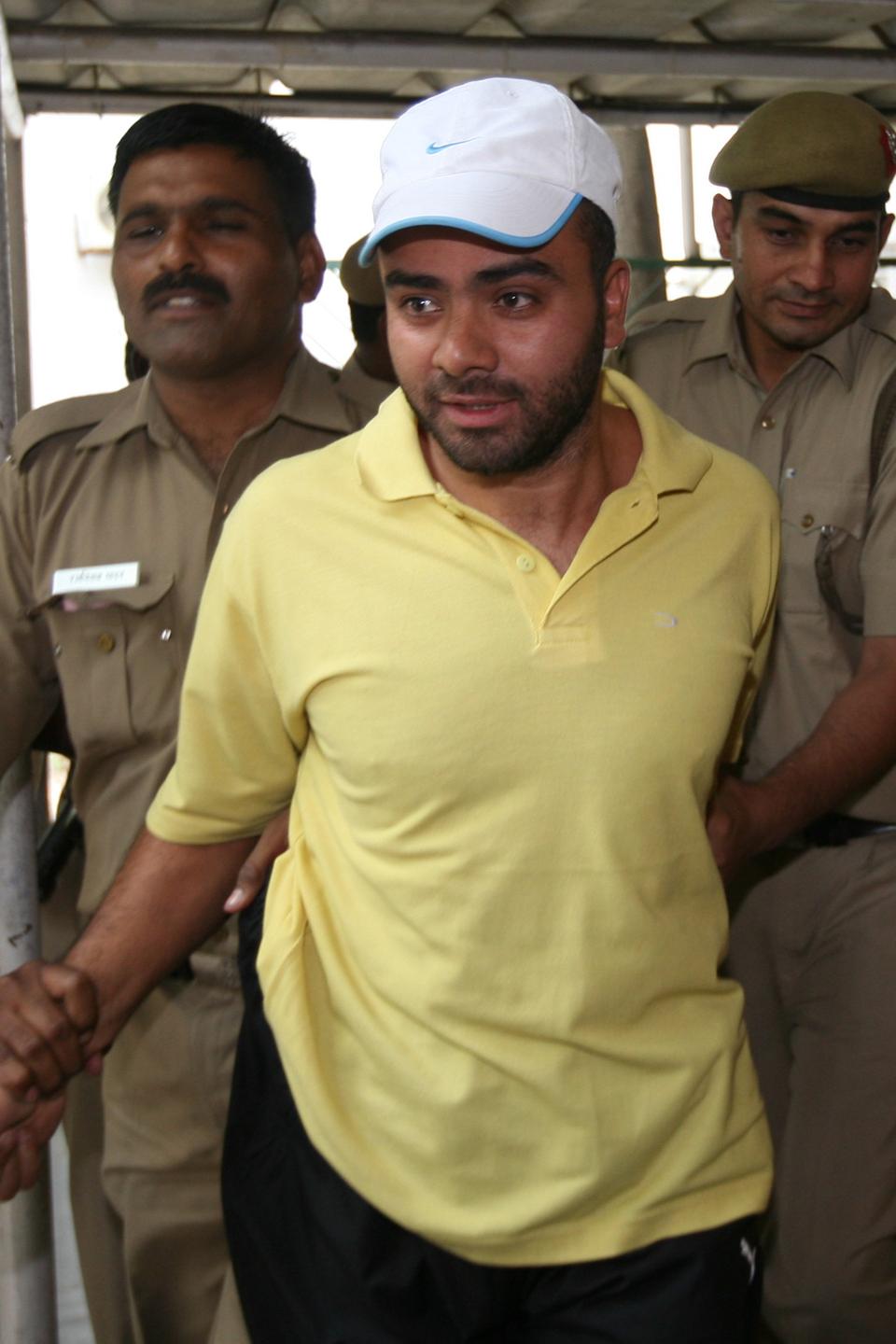

Mirza Nissar Hussain, wrongly convicted in the '1996 Lajpat Nagar bomb blast case', seen after a hearing at Patiala Court in New Delhi on Thursday, April 8, 2010. The court convicted him along with 5 others in the case. (Perveen Negi / TRTWorld)
One day, when Nisar sees his elder brother, Zaffar Hussain, he breaks down and realises his helplessness. He pleads for him not to visit in the future and to let him be. He bids him farewell and resigns to his fate, again. He now realises the futility of hope.
The same evening, Nisar hears loud thuds, like gallops, approaching towards him. The heavy door of his cell is thrown open and he is dragged out. Dozens of policemen and several prisoners, holding wooden clubs, start beating him until he loses consciousness and is thrown back into the same cell.
Nine months later, Nisar is shifted back to Tihar where he stays until late 2012.
In Tihar, Nisar meets other Kashmiris who had been framed in the same cases. While there are no frequent beatings and torture in Tihar, life there is fraught with its challenges.
In a barrack with a capacity of not more than 50 people, the cell where Nisar is kept is packed with over 150-170 people. In Delhi’s simmering heat and humidity and the absence of any cooling arrangements, getting a moment’s sleep in these cells is unimaginable.
Nisar and his friend protest against going back to the overcrowded barrack. The jail in-charge, Subhash Sharma, who has earned the sobriquet ‘Saddam Hussain’ for his strictness, puts them in Kasuri ward, a cell reserved for those who violate prison rules. And it comes as a relief. The Kasuri ward is not overcrowded and has enough space for Nisar and his friend so that they can sleep and pray at ease.
Hope and despair
Life becomes fragile when you give up on hope. In his 23 years of prison life, more than 30 judges were changed as they kept dragging the case to a point where it became completely hollowed out. There was one instance in 2006 when a bench was hearing Nisar’s case on a day-to-day basis and his hope for freedom seemed to resurrect.
The 16 prime witnesses the Delhi Police had presented turned hostile. Nisar and others had learnt to hope again. One day, when Nisar was taken to the Patiala Court for the hearing, he found there was no judge. His rekindled hope had been doused again.
In 2010, his brother, Mirza Iftikhar, was acquitted of all charges and released. That revived hope. Soon after his release, Iftikhar moved the Delhi High Court in his brother’s case and challenged the lower court’s order.
Since the case had gone off the rails, the witnesses turned hostile and the case was cannibalised by its own loopholes. The High Court finally acquitted Nisar and his friend Ali Mohammad in 2012 of all charges in the Lajpat Nagar Bomb Blast case. Nisar’s good behaviour in court was duly mentioned and appreciated by the judge who pronounced the judgment.
Nisar waited in anticipation. He imagined himself walking out of the prison. He was eager and impatient. He had forgotten what it meant to be free. But it was still out of reach. Nisar and Ali were shifted to Rajasthan jail to await a verdict in the Samleti blast case.
One day, when Nisar sees his elder brother, Zaffar Hussain, he breaks down and realises his helplessness. He pleads for him not to visit in the future and to let him be. He bids him farewell and resigns to his fate, again. He now realises the futility of hope.
The same evening, Nisar hears loud thuds, like gallops, approaching towards him. The heavy door of his cell is thrown open and he is dragged out. Dozens of policemen and several prisoners, holding wooden clubs, start beating him until he loses consciousness and is thrown back into the same cell.
Nine months later, Nisar is shifted back to Tihar where he stays until late 2012.
In Tihar, Nisar meets other Kashmiris who had been framed in the same cases. While there are no frequent beatings and torture in Tihar, life there is fraught with its challenges.
In a barrack with a capacity of not more than 50 people, the cell where Nisar is kept is packed with over 150-170 people. In Delhi’s simmering heat and humidity and the absence of any cooling arrangements, getting a moment’s sleep in these cells is unimaginable.
Nisar and his friend protest against going back to the overcrowded barrack. The jail in-charge, Subhash Sharma, who has earned the sobriquet ‘Saddam Hussain’ for his strictness, puts them in Kasuri ward, a cell reserved for those who violate prison rules. And it comes as a relief. The Kasuri ward is not overcrowded and has enough space for Nisar and his friend so that they can sleep and pray at ease.
Hope and despair
Life becomes fragile when you give up on hope. In his 23 years of prison life, more than 30 judges were changed as they kept dragging the case to a point where it became completely hollowed out. There was one instance in 2006 when a bench was hearing Nisar’s case on a day-to-day basis and his hope for freedom seemed to resurrect.
The 16 prime witnesses the Delhi Police had presented turned hostile. Nisar and others had learnt to hope again. One day, when Nisar was taken to the Patiala Court for the hearing, he found there was no judge. His rekindled hope had been doused again.
In 2010, his brother, Mirza Iftikhar, was acquitted of all charges and released. That revived hope. Soon after his release, Iftikhar moved the Delhi High Court in his brother’s case and challenged the lower court’s order.
Since the case had gone off the rails, the witnesses turned hostile and the case was cannibalised by its own loopholes. The High Court finally acquitted Nisar and his friend Ali Mohammad in 2012 of all charges in the Lajpat Nagar Bomb Blast case. Nisar’s good behaviour in court was duly mentioned and appreciated by the judge who pronounced the judgment.
Nisar waited in anticipation. He imagined himself walking out of the prison. He was eager and impatient. He had forgotten what it meant to be free. But it was still out of reach. Nisar and Ali were shifted to Rajasthan jail to await a verdict in the Samleti blast case.
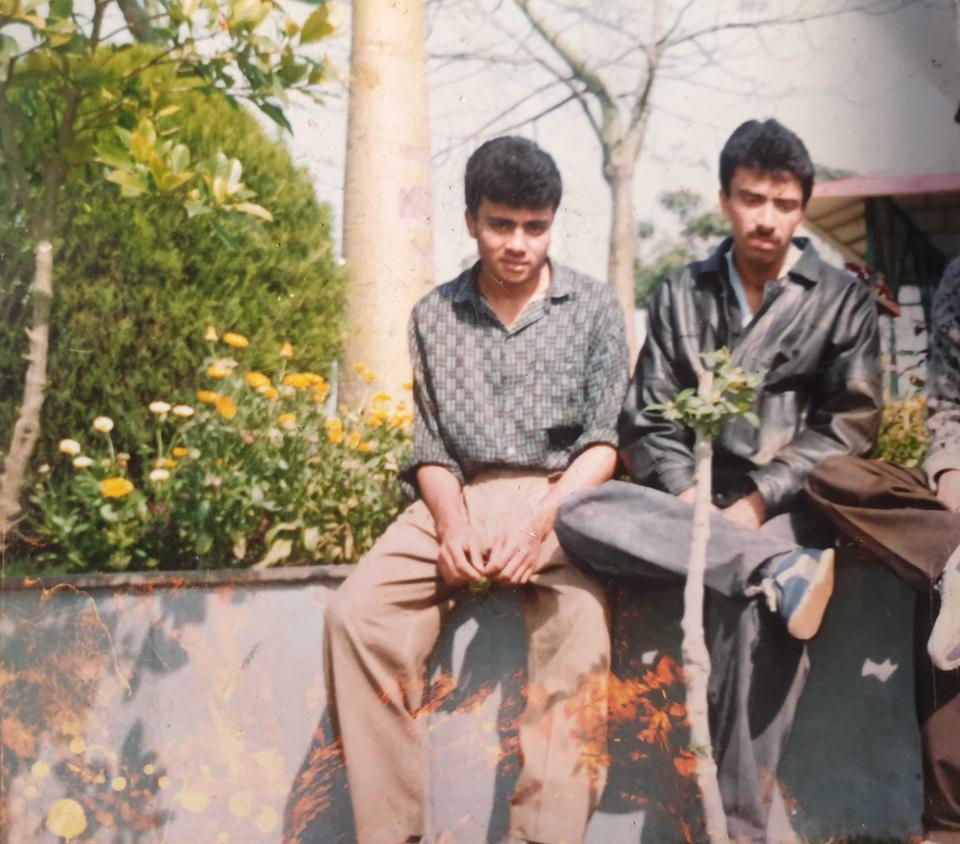
An old photograph of Mirza Nisar Hussain (left) with his brother Mirza Iftikhar (Right). (TRTWorld)
As soon as he reached the jail, Nisar was struck by the realisation that maybe he is destined to die alone in a prison cell.
His time in Rajasthan jail was not easy. Whenever there were attacks on Indian forces in Kashmir or massive anti-India protests, Nisar and his fellow Kashmiris faced the brunt of it - the inmates called them terrorists, beat them up and abused them.
When a suicide bomber in Kashmir’s Pulwama killed over 40 Indian paramilitary troops on February 14, 2019, everything inside the jail changed. Emotions ran high. They were constantly abused and threatened.
In the aftermath of the February 2019 attack, Nisar recalls, some prisoners bludgeoned a Pakistani prisoner to death with a stone in a TV room because they wanted to avenge the deaths of Indian troops.
In such a hostile environment, Nisar was uncertain of his fate. But fate works in unusual ways. A former Delhi University Professor, the late SAR Geelani, helped to arrange for Nisar a reputed lawyer, Kamini Jaiswal, who represented Nisar and Ali in the Samleti blast case.
Again, judges were changed, the case dragged on and hearings were adjourned. It was finally in 2019 when a judge from Punjab heard the case on a day-to-day basis for 10 days and heard all the arguments. She acquitted Nisar and Ali and they walked free from Rajasthan jail on July 23, 2019. Hope had finally outlived injustice.
Freedom?
“Sometimes I think I was better off in jail,” Nisar says as he reflects on his life. “I knew my fate when I was in jail. Here I am uncertain. There is too much to worry about.”
It has been more than a year since he was released, but Nisar hasn't found a way to earn. “Soon after I was released, the entire Kashmir was put under a lockdown and the government had other priorities. Any chances of being compensated for my 23 years of wrongful confinement were lost. It was followed by the coronavirus (pandemic),” he says.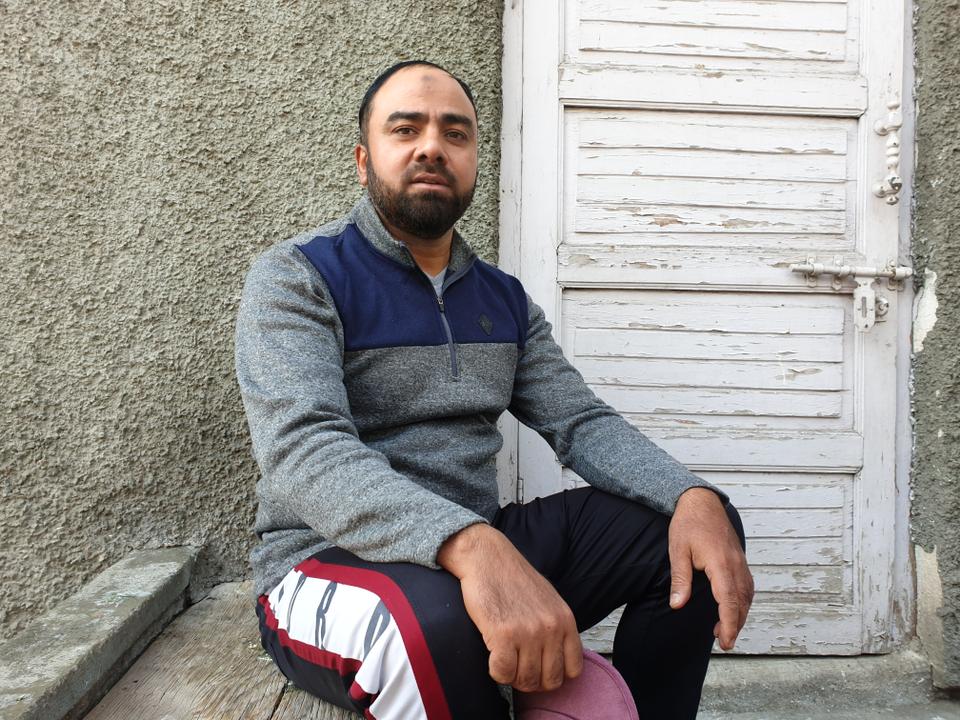
As soon as he reached the jail, Nisar was struck by the realisation that maybe he is destined to die alone in a prison cell.
His time in Rajasthan jail was not easy. Whenever there were attacks on Indian forces in Kashmir or massive anti-India protests, Nisar and his fellow Kashmiris faced the brunt of it - the inmates called them terrorists, beat them up and abused them.
When a suicide bomber in Kashmir’s Pulwama killed over 40 Indian paramilitary troops on February 14, 2019, everything inside the jail changed. Emotions ran high. They were constantly abused and threatened.
In the aftermath of the February 2019 attack, Nisar recalls, some prisoners bludgeoned a Pakistani prisoner to death with a stone in a TV room because they wanted to avenge the deaths of Indian troops.
In such a hostile environment, Nisar was uncertain of his fate. But fate works in unusual ways. A former Delhi University Professor, the late SAR Geelani, helped to arrange for Nisar a reputed lawyer, Kamini Jaiswal, who represented Nisar and Ali in the Samleti blast case.
Again, judges were changed, the case dragged on and hearings were adjourned. It was finally in 2019 when a judge from Punjab heard the case on a day-to-day basis for 10 days and heard all the arguments. She acquitted Nisar and Ali and they walked free from Rajasthan jail on July 23, 2019. Hope had finally outlived injustice.
Freedom?
“Sometimes I think I was better off in jail,” Nisar says as he reflects on his life. “I knew my fate when I was in jail. Here I am uncertain. There is too much to worry about.”
It has been more than a year since he was released, but Nisar hasn't found a way to earn. “Soon after I was released, the entire Kashmir was put under a lockdown and the government had other priorities. Any chances of being compensated for my 23 years of wrongful confinement were lost. It was followed by the coronavirus (pandemic),” he says.

Mirza Nisar Hussain at his home in Srinagar's Shamswari, in India-administered Kashmir. (Haziq Qadri / TRTWorld)
It’s becoming increasingly difficult for Nisar to face his relatives, neighbours and acquaintances, for they keep asking about his plans to get married, a job and his future.
“There is no future. What should I tell them?” Nisar says.
Now whenever a guest or a relative visits his home in Srinagar’s old city, Nisar rushes off to another room and waits for the guest to leave so that he doesn’t need to speak about his future. “Who will marry a 40-year-old jobless man?” he asks.
When his brother, Iftikhar, was released, he bore some of the expenses of the case, even though Kamini Jaiswal did not charge anything from the Mirza family. He works at a private firm and they had loaned him money to meet the expenses of the case.
Now that Nisar has been released, half of Iftikhar’s salary is cut to pay back the loan. Whatever little is left, helps to run household expenses. Another brother, Zaffar Hussain, is a private teacher and earns a modest salary.
When Nisar and his brother were arrested in 1996, their shops and goods in Delhi were confiscated. Their family business could never be revived. “If we had not been falsely implicated, we would have been doing well right now. I would not have been begging for a job,” he says.
Every time he looks at his mother, Nisar says, a feeling of despondency dawns upon him. “She wants to see me have a future. She doesn't want me to suffer. She is tormented by questions people ask about me. That torments her. And her grief torments me,” Nisar says. “Life outside the jail is not so free after all.”
It’s becoming increasingly difficult for Nisar to face his relatives, neighbours and acquaintances, for they keep asking about his plans to get married, a job and his future.
“There is no future. What should I tell them?” Nisar says.
Now whenever a guest or a relative visits his home in Srinagar’s old city, Nisar rushes off to another room and waits for the guest to leave so that he doesn’t need to speak about his future. “Who will marry a 40-year-old jobless man?” he asks.
When his brother, Iftikhar, was released, he bore some of the expenses of the case, even though Kamini Jaiswal did not charge anything from the Mirza family. He works at a private firm and they had loaned him money to meet the expenses of the case.
Now that Nisar has been released, half of Iftikhar’s salary is cut to pay back the loan. Whatever little is left, helps to run household expenses. Another brother, Zaffar Hussain, is a private teacher and earns a modest salary.
When Nisar and his brother were arrested in 1996, their shops and goods in Delhi were confiscated. Their family business could never be revived. “If we had not been falsely implicated, we would have been doing well right now. I would not have been begging for a job,” he says.
Every time he looks at his mother, Nisar says, a feeling of despondency dawns upon him. “She wants to see me have a future. She doesn't want me to suffer. She is tormented by questions people ask about me. That torments her. And her grief torments me,” Nisar says. “Life outside the jail is not so free after all.”
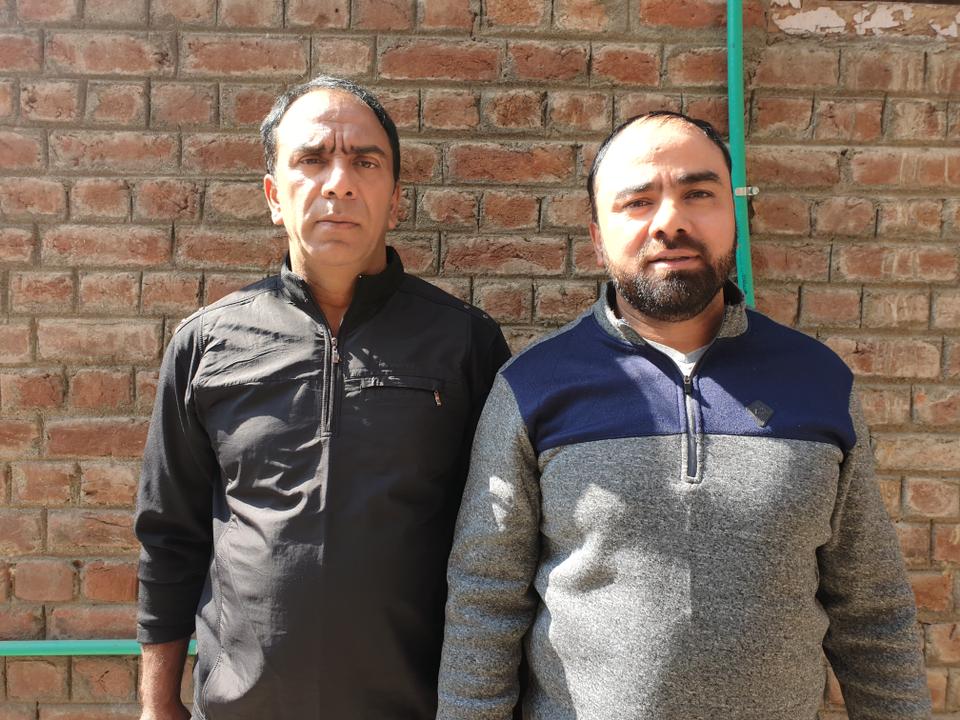
Mirza Nisar Hussain with his brother Mirza Iftikhar (left) at his residence in Srinagar's Shamswari in india-administered Kashmir. (Haziq Qadri / TRTWorld)
Justice?
People in their forties might reflect back on their lives and sift through all the memories, good and bad. But what if there is only one memory that permeates throughout your entire life?
What if there is no memory except those of cold concrete grey walls; of years and years of hopelessness; of ageing without dreams; of stolen adolescence; of deceit and betrayal; of being reduced to a number? Then it’s not a memory. It’s not life. It’s a dark spell that makes you believe in the futility of existence, of everything good, like hope. And what if this dark spell lasts a lifetime?
It’s not that Nisar is not happy to be ‘free’, but what does justice mean to him? Does freedom after 23 years offer a semblance of justice? What should one call it?
Nisar sums it up with just a handful of words: “Justice died in prison.”
Justice?
People in their forties might reflect back on their lives and sift through all the memories, good and bad. But what if there is only one memory that permeates throughout your entire life?
What if there is no memory except those of cold concrete grey walls; of years and years of hopelessness; of ageing without dreams; of stolen adolescence; of deceit and betrayal; of being reduced to a number? Then it’s not a memory. It’s not life. It’s a dark spell that makes you believe in the futility of existence, of everything good, like hope. And what if this dark spell lasts a lifetime?
It’s not that Nisar is not happy to be ‘free’, but what does justice mean to him? Does freedom after 23 years offer a semblance of justice? What should one call it?
Nisar sums it up with just a handful of words: “Justice died in prison.”
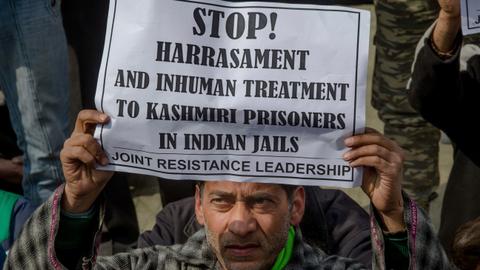
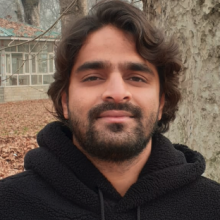
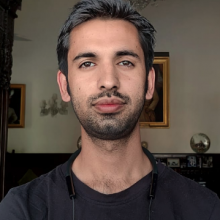
No comments:
Post a Comment